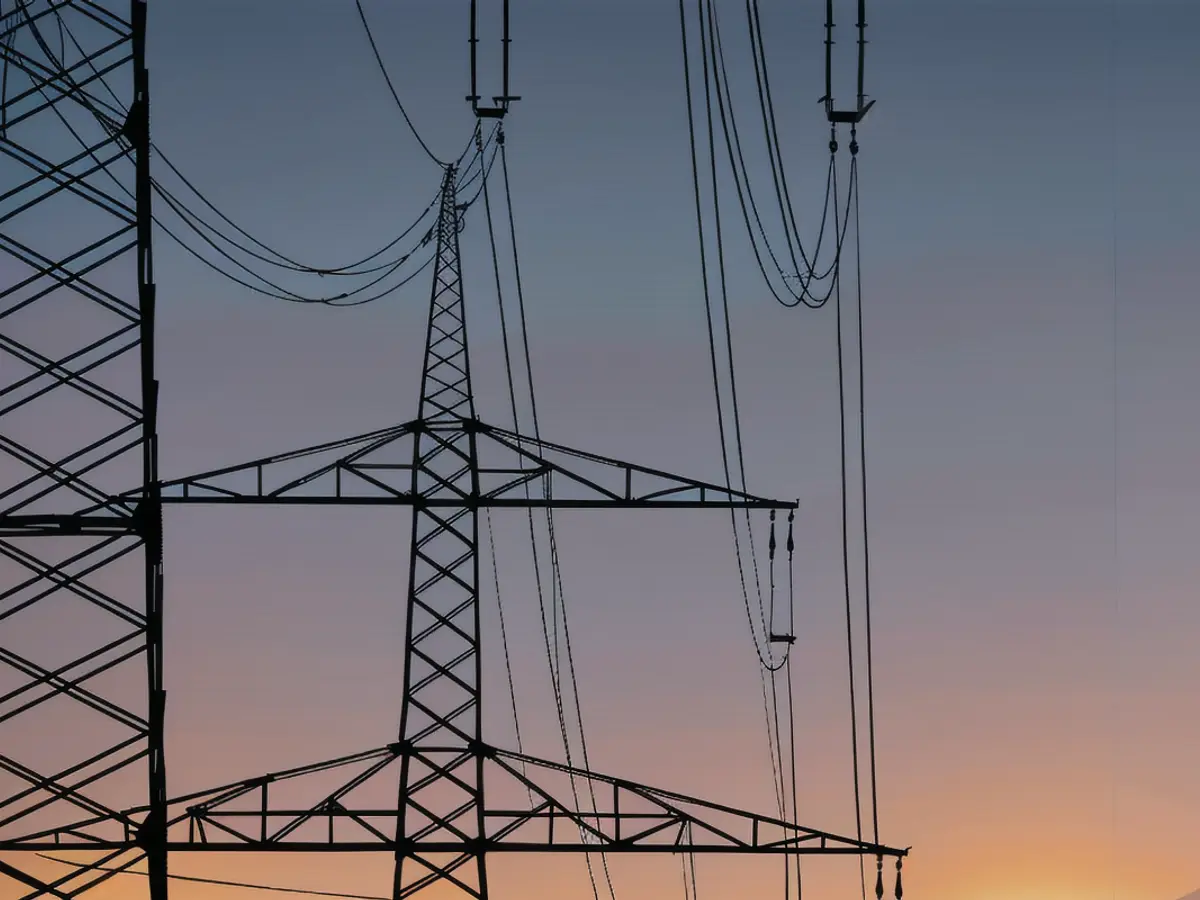Die Behörden rechnen mit erheblichen Kostensenkungen durch die Erweiterung des Stromnetzes im Freien.
In 2016, the SPD and CDU emphasized the use of earth cables for network expansion to alleviate concerns about "monster roads." However, some federal states are now considering switching to overhead lines for cost savings. The Federal Court of Auditors has provided figures on potential savings.
The Federal Network Agency has estimated the potential savings if they don't use underground cables for network expansion until 2045. The agency stated, "Based on current projections, the investment without earth cables amounts to about 284.7 billion euros." The original expected investment for the same period was approximately 320 billion euros. The difference between these two amounts is 35.3 billion euros.
These new lines are intended to improve the distribution of renewable energy in Germany, a requirement for the formation of a climate-neutral energy system. The Network Agency estimates that potential savings in the transmission network for connections to onshore wind farms could reach 16.5 billion euros. Additionally, the agency predicts that offshore connection lines, which have previously been planned as earth cables, could save an additional 18.8 billion euros if switched to overhead lines. Since 2016, earth cables have had priority.
There has been an earth cable priority for large power highways since early 2016, implemented by the coalition of CDU and SPD to increase public acceptance for network expansion. These concerns about "monster roads" were the motivation. Currently, some federal states are advocating for the use of cheaper overhead lines instead.
Notably, the costs for network expansion are passed on to all electricity customers through network fees. The Network Agency claims they have no knowledge of any technical or spatial issues with implementing earth cable projects as overhead lines. "The compatibility of network expansion projects with the goals and basic principles of spatial planning can be assessed equally for earth cable and overhead line projects," the agency added.
However, due to discrepancies in methodology for the study, there could be various route options. There may also be delays if projects now in the approval process change from earth cables to overhead lines. "A decision to change the earth cable priority would be a political one," a spokesperson for the agency explained. "We have always valued that the legislature determines whether the projects should be implemented as overhead lines or earth cables."







